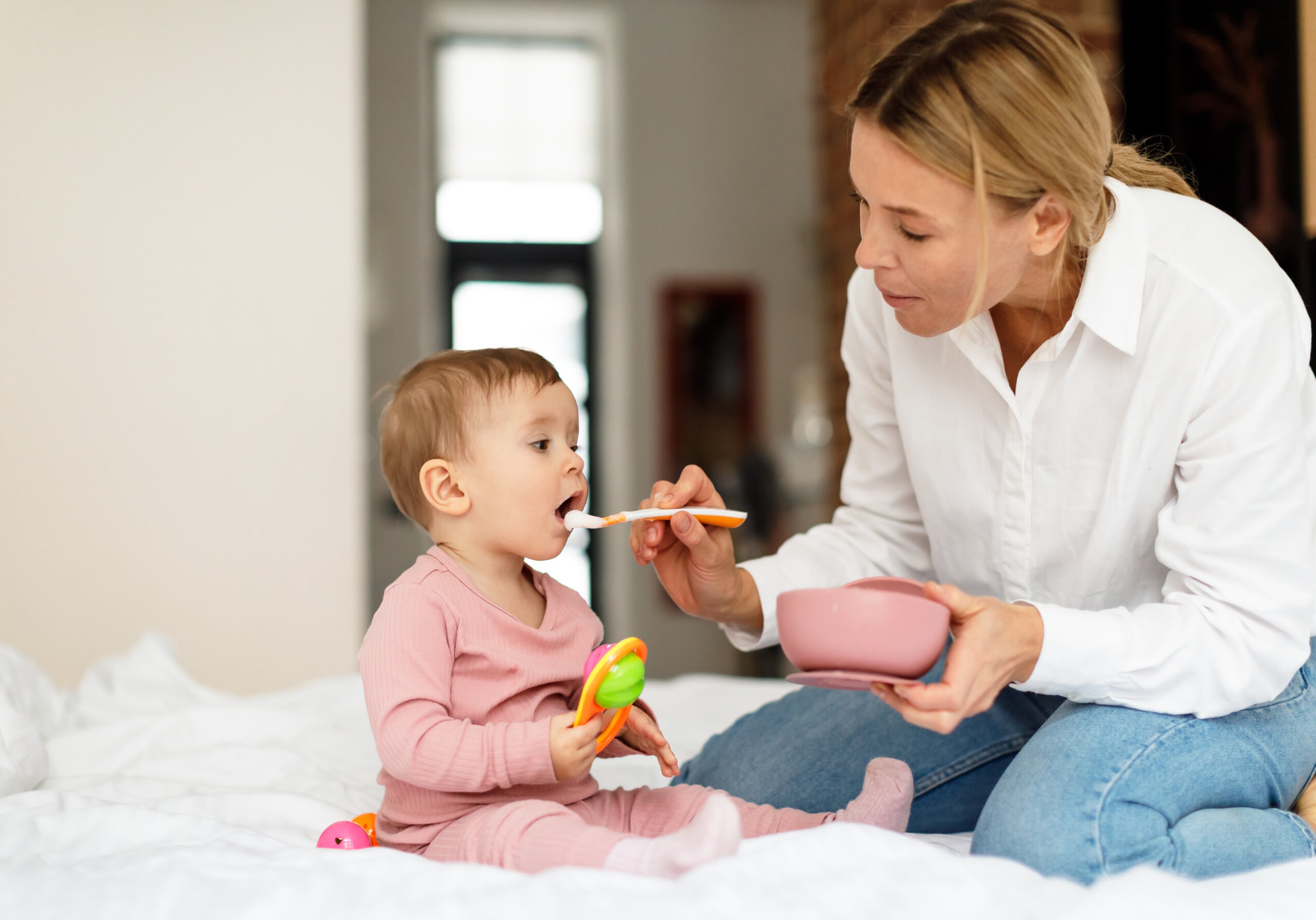Welcome to Open Learning College – Change your career, Increase your salary, and Improve your life.
 Course Overview
Course Overview
Embark on a transformative learning journey with the UK’s most innovative home study provider, offering courses designed to unlock your true potential and facilitate the career change you desire. Access our distance learning courses directly from anywhere, anytime, and acquire industry-recognised Professional Qualifications essential for advancing in your career.
Specifically, explore the flexible and convenient Childcare (Level 3) course, an ideal way to gain a diploma qualification. Whether you aim for further education, improved job prospects, or expanded knowledge, this comprehensive course allows you to prepare thoroughly for exams or careers through home study. Plus, it’s structured to be accessible and beneficial even if you have no prior knowledge in Childcare.
This comprehensive online Childcare course offers a deep dive into the essential qualities required for a rewarding career in childcare, making it an invaluable subject matter for aspiring childcare professionals. From understanding child development pre-conception through the critical early years up to age seven, participants gain insights into the intricate processes shaping children’s cognitive, social, and behavioural development. By examining cognitive processes such as language acquisition, speech development, and social skills, participants acquire a nuanced understanding of how children perceive and interact with the world around them.
Moreover, the course delves into psycho-social issues and external influences impacting child development, providing a holistic perspective crucial for effective childcare practices. By exploring factors affecting behaviour, participants gain the knowledge and skills necessary to create nurturing and supportive environments conducive to optimal child development. Understanding the interplay between nature and nurture is a recurring theme throughout the course, fostering critical thinking and informed decision-making in childcare professionals.
Anatomy and physiology play a pivotal role in understanding child development, and this course presents a chronological timeline of developmental stages for each body system. By comprehensively examining the physical and mental changes children undergo, participants develop a profound appreciation for the complex needs of children at different stages of development. Furthermore, the course emphasises the importance of learning through play and interactive educational concepts, equipping professionals with innovative approaches to engage and support children in their care.
Awarded by OLC Learning College and accredited by Accord AI, this course offers a professional qualification with the assurance of a leading awarding body. With Ten Units covering a range of essential topics, participants receive a well-rounded education that prepares them to excel in the dynamic field of childcare. Whether embarking on a new career path or seeking to enhance existing skills, this course provides the knowledge and expertise needed to make a positive impact on the lives of children and families.
 Course Key Topics
Course Key Topics
the Childcare (Level 3) course is divided into 10 modules.
Module 1: Course introduction: genetics, embryology and foetal development
Each child has character arising from its biology, genetics and the environment in which it is raised. The first module looks at the history of child development starting at the very beginning when a child is conceived and develops within the mother. Genetics, inheritance and sex determination are examined and explained in order to understand whether the nature and characteristics of a child are predetermined or influenced by inheritance, how basic genetics are inherited and how traits are passed on to the child. A brief summary of reproduction, embryology and the development of the integumentary system in a child, how for example twins forms, genetic traits are passed to the children is covered. The following chapters will continue along this theme, helping the learner understand the various stages of child development in greater detail, and what factors affect their healthy development.
Module 2: Developmental anatomy and physiology of the child: Part 1
This module looks at the development of the musculoskeletal system, including bone and muscle structure, function and growth at the various stages of a child. It provides details expected during each stage so those looking after and working with children understand what a healthy baby and child should look like, how they develop and what signs help us identify any problems early on. A concise list of the major bones, muscles and how information is passed from the nervous system to help transport is covered. Students will also deal with the development of the nervous system, and how it connects to development of knowledge, language and cognitive skills alongside with the development of the musculoskeletal system around which all movement is based. These two systems are key to attaining early and healthy human development from baby to adulthood.
Module 3: Developmental anatomy and physiology of the child: Part 2
Continuing with the development of major systems, the development of the cardiovascular and respiratory systems ensures that the body is supplied with food and oxygen, and waste is removed from the body. The systems inside a foetal are very different to that of a baby, so the differences are observed and discussed as certain factors such as a mother smoking and drinking can affect the health of the foetus. The two systems are looked at in detail from its individual components such as blood and how oxygen enters our body, to how the mother keeps the foetus healthy and the changes that occur in a baby. For those looking after babies we look at detail at the structure, function, pre and post natal circulation and sudden infant death syndrome (SIDS). Much research is done to eliminate this terrible early death of babies, and professionals are taught how to prevent and minimise any chance of this happening in babies in their care.
Module 4: Developmental anatomy and physiology of the child: Part 3
This unit deals with the development of the gastrointestinal and renal systems. How a foetus obtains nutrients and water and how it excretes waste, to what a baby and child needs throughout its care is studied in detail. How food is digested, the organs involved, the role of enzymes in digestion to how nutrients are absorbed at all stages of a child’s life is discussed. We look at the systems – the mouth, oesophagus, stomach, intestine, kidneys, liver and the endocrine system which maintains balance in our body through the production of hormones. We investigate systems involved in digestion and the elimination of waste, we study how these grow and develop in the different stages of a child’s life. What constitutes a healthy diet, how do we protect the body, and how do these affect the physical and mental development of a child at each stage is addressed. What is the role of hormones in foetal and child development is studied by looking at the way the endocrine systems works in the mother and the baby.
Module 5: Developmental anatomy and physiology of the child: Part 4
We start to look at the function of reproduction to gain an insight into pre-natal development to birth. The main systems covered in this module are those responsible for our senses, so we take an in-depth look at the eyes, the nose, and dentition and how we touch, smell and taste. Each organ is studied in structure and how it works, both in the foetus and after birth as the child grows and develops, many biological terminology is introduced and it is not expected that these will be remembered, but as experience with working with children grows, so these terms become embedded into the knowledge base, and any problems in children can easily be identified.
Module 6: Birth and beyond: growth and care of the child
This module deals with the birth, the tests and measurements used to show a child grows and develops immediately it is born to more detailed and accurate coverage of development up to age 7 years. It also looks at nutrition, measurements and weight, together with childhood illness and vaccination programmes. Common ailments and problems in growth and development are identified. It must be stressed here that most statistics are often based on averages and there will always be differences due to culture, gender and the environment in which a child develops, however such measurements can help to identify any growth problems early and easily. Thus early childhood diseases, vaccination programmes and a healthy growth chart is discussed in depth. Basic healthy and good nutrition is vital to maintain good health and growth of babies and children.
Module 7: Language and speech development
Whole university courses cover how language and speech develops and how we learn to speak. This module will cover how babies and children develop language and speech, what processes are involved and how professionals can positively impact on this process. Detailed discussion on what affects how a baby learns, so we all know that parents repeatedly ask babies to say ‘mama’ ‘dada’ so these are often the first words. We look at activities to aid the development of language and look at average normal acquisition of words throughout the life of a child. Any child struggling to speak or slow at learning can be helped and encouraged by using certain activities, and many examples are given throughout this module. Learners must practise and evaluate what works, how to improve efficiency and carry out the activities to suit the learner child.
Module 8: The development of cognitive skills
This module looks at cognitive structures, how babies know, learn and how babies learn to interact, their development, and the learning of resulting concepts. It also deals with relationships and interaction. This is a contentious subject and there are many theories on how babies and children learn to interact and learn cognition. The nature v nurture debate continues by looking at genetic and environmental influences. Cognition happens in the brain and affects behaviour, so temperament is achieved, how babies hear, see, think is key to understanding how those looking after babies influence their growth and development. What is key here is that babies and children must not be left in front of the television or playing computer games, but need communication, stimuli and appropriate games to develop their cognitive skills and abilities.
Module 9: Learning through play
Play is an integral part of child development, and structured play helps the mental and physical development processes. The role of the professional is one of enabler using suitable games that support educational attainment. Games have to be appropriate and evaluated for their effectiveness. Play has different purpose so after lunch when we want children to settle for a nap, gentle music and a story is much better than a stimulating activity. Babies and children need different stimuli, play and games for different learning. The environment in which children are raised is important, a colourful and fully equipped nursery is not essential, but a room full of different textures, books, games and activities is clearly of benefit, a baby can get as much fun from an empty box as they can from the latest technological colourful toy. Important trips to the park, to play areas and opportunities for babies and children to interact and learn social skills. Age-appropriate games and activities help children to grow and develop, so getting dirty, playing outside, running and being outside is as important as having the latest toys and games. No one method works for an individual, so what works for one sibling may not for another so opportunity is given on how to experiment and trial different toys, games and activities.
Module 10: Working with children and course collation
Our online childcare course ends with a look at the many jobs and opportunities there are to work in childcare, from being in a Nursery to a school or looking after children in one’s home. The responsibilities and legal requirements like health and safety, Ofsted and safety is covered in detail. It is recommended that all professionals should have a basic training in first aid and resuscitation. Each role, what it entails and the qualification needed are listed. Key safety requirements from knowing about the various laws to common sense and key safety precautions are covered in depth. Details of main bodies and organisations dealing with the childcare profession are given here.
(Please click on the curriculum tab above to see a detailed view of each module)
Course Content
Childcare (Level 3) – FREE Starter Pack
How to…. (a series of explainer videos)
Module 1 – Course introduction: genetics, embryology and foetal development
Module 2 – Developmental anatomy and physiology of the child: Part 1
Module 3 – Developmental anatomy and physiology of the child: Part 2
Module 4 – Developmental anatomy and physiology of the child: Part 3
Module 5 – Developmental anatomy and physiology of the child: Part 4
Module 6 – Birth and beyond: growth and care of the child
Module 7 – Language and speech development
Module 8 – The development of cognitive skills
Module 9 – Learning through play
Module 10 – Working with children and course collation
Course Resources
Final Exam
College Announcements
🔍 Unlock the Secrets of Child Development with £50 OFF the Childcare (Level 3) Course! 👶📚
Ready to delve into the captivating realm of childcare? For a limited time only, we're excited to offer you an exclusive discount of £50 off our Childcare (Level 3) course!
Use code CHILD50 at checkout before the month ends!
👣 Why Choose Our Childcare Course
The Childcare (Level 3) course, presented by Open Learning College, is your gateway to a profound understanding of child development and caregiving skills. This comprehensive course delves into essential topics such as genetics, embryology, language development, cognitive skills, and much more.
💪 What Makes Our Course Shine
Flexibility: Tailor your learning to fit your schedule, with 24/7 access to course materials.
Comprehensive Support: Benefit from guidance and support from our expert tutors throughout your learning journey.
Real-World Insights: Gain practical skills and knowledge vital for a successful career in childcare.
Don't miss this opportunity to explore the exciting world of childcare at a discounted rate! Enroll now, use code CHILD50* at checkout, and embark on your journey to becoming a skilled childcare professional. 👶📚
*This discount code cannot be used in conjunction with any other offer.









 Get Social!
Get Social!










Michael Patel.